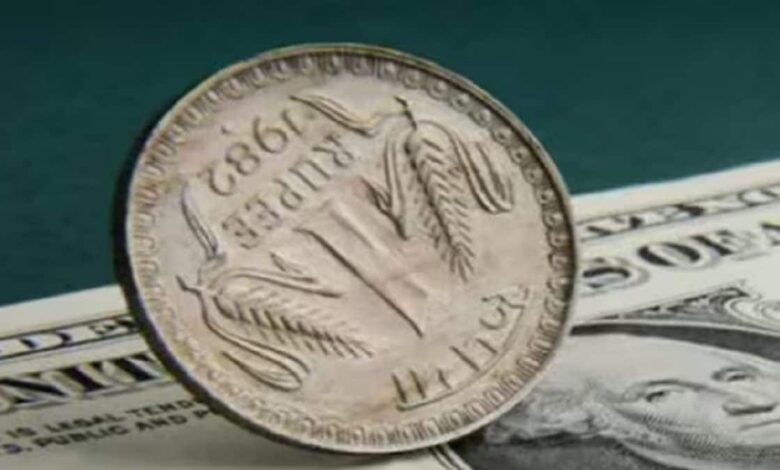Rupee Declines Below 84 Vs Dollar for the First Time in History: Why is Indian Currency Falling?

The rupee has fallen to a record low of 84.0975 per US dollar.
The Indian rupee has been falling vis-a-vis the US dollar due to continued outflow of foreign funds from Indian equities and elevated crude oil prices amid global uncertainties.
Rupee Crosses 84 Mark Vs Dollar: The Indian rupee on October 11 breached the 84 mark against the US dollar for the first time in history, declining 12 paise to a record low of 84.0975 per dollar, due to continued outflow of foreign funds from Indian equities and elevated crude oil prices amid global uncertainties.
The rupee had closed at 83.98 to a dollar, according to the Clearing Corporation of India Ltd (CCIL).
“After keeping it in a range below 83.99 since August 8, 2024, the rupee finally weakened past 84.00 as FPIs (foreign portfolio investors) have emerged as big sellers in Indian equities, thus raising dollar demand,” Anil Kumar Bhansali, head of treasury and executive director at Finrex Treasury Advisors LLP, told digihunt.com.
Foreign investors bring in dollars to invest in India, and they pull out the US currency in case of outflows. So, inflows raise the supply of dollars in India and hence making it cheaper as compared with the rupee, while outflows raises its demand to make it expensive.
FPIs have sold shares worth Rs 55,000 crore in the Indian stock market in the past nine days, which is around $1 billion per day.
“We can now expect the rupee to further fall to 84.25 in the short term. Importers will continue buying at all dips and exporters may now hold their exports with a stop below 83.95. The Iran-Israel-Lebanon issue also continues with no de-escalation, which could keep crude oil strong and the rupee weaker,” Bhansali added.
The Brent crude has jumped to $78.92 per barrel now from nearly $69 dollar on September 30.
The recent stimulus in China, which also included 10 basis points policy rate cut and a 50 basis point reduction in cash reserve ratio, is also causing foreign investors to move to Chinese equity markets as they have cheaper valuations, according to a market analyst.
According to Bloomberg, China may unveil another 2 trillion yuan ($283 billion) fresh fiscal stimulus on Saturday in order to shore up its economy.
The dollar index, which gauges the greenback’s strength against a basket of six currencies, continues to hover nearly 102.90. The US yields continued to trade higher though they have fallen slightly from their highs.
European currencies on Friday were slightly higher but moved in a range, while Asian currencies were range-bound after South Korea cut rates by 25 bps for the first time in four years.


